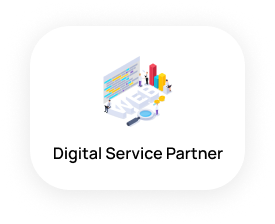What is Competitor Analysis?
Competitor analysis in SEO refers to the process of identifying, evaluating, and understanding the strategies of other businesses operating in the same industry and targeting similar keywords or customer segments. By conducting a thorough competitor analysis, businesses can gain several benefits:
- Identifying Gaps and Opportunities: Analyzing competitors’ strengths and weaknesses reveals potential opportunities that may have been overlooked in your SEO strategies. It also helps identify gaps in the market where you can position your brand.
- Benchmarking Performance: By comparing your website’s performance against competitors, you can gauge your SEO efforts’ effectiveness and set realistic goals.
- Improving Keyword Research: Analyzing competitors’ keywords allows you to discover high-performing keywords and incorporate them into your content strategy.
- Understanding User Experience: Evaluating competitors’ websites and user experience can offer insights into website design, navigation, and content presentation, which can inform your site improvements.
When conducting competitor analysis, it’s essential to consider both direct competitors, who offer similar products or services, and indirect competitors, who target a similar audience but with different offerings.
Traditional Competitor Analysis Methods
Traditionally, businesses have relied on manual research and data collection for competitor analysis. This involves scouring competitors’ websites, social media, and online presence to gather information such as:
- Keyword usage and rankings
- Content strategies
- Backlink profiles
- Social media engagement
- Advertisements and promotions
While these methods can provide valuable insights, they have several limitations and challenges:
- Time-Consuming: Manual research can be time-consuming, especially for businesses with many competitors or extensive online footprints.
- Incomplete Data: Information collected manually may be limited, leading to an incomplete understanding of competitors’ strategies.
- Lack of Real-Time Updates: Competitor landscapes change rapidly, and manual research may not capture the latest developments.
Leveraging AI for Advanced Competitor Analysis
The emergence of AI has significantly transformed the way competitor analysis is performed. AI-driven competitor analysis brings several advantages over traditional methods:
- Data Collection and Analysis: AI tools can efficiently gather vast amounts of data from multiple sources, providing a more comprehensive picture of competitors’ activities.
- Real-Time Monitoring: AI allows for real-time monitoring of competitors’ actions, ensuring that you stay up-to-date with the latest changes in the competitive landscape.
- Competitive Intelligence: AI-powered algorithms can analyze data to generate actionable insights, such as identifying patterns, trends, and emerging opportunities.
Key Metrics and Data Points for Competitor Analysis
When analyzing competitors, it’s essential to focus on key metrics and data points that can provide valuable insights into their strategies. Some crucial metrics to consider include:
- Keyword Rankings: Identify which keywords your competitors are ranking for and their positions in search results.
- Backlinks: Examine the quantity and quality of backlinks to competitors’ websites to understand their link-building efforts.
- Organic Traffic: Analyze competitors’ organic traffic to assess the effectiveness of their SEO efforts.
- Content Strategy: Evaluate the type of content competitors are creating and its performance in terms of engagement and social shares.
- Social Media Presence: Assess competitors’ social media activity and engagement to understand their audience outreach.
Implementing AI Findings into Your SEO Strategies
Integrating AI-generated insights into your existing SEO strategies involves a systematic approach:
- Data Analysis and Interpretation: Start by analyzing the data provided by AI tools to gain a comprehensive understanding of competitors’ strengths and weaknesses.
- Identify Opportunities: Use the insights gained from the analysis to identify untapped opportunities and potential gaps in your SEO strategies.
- Keyword Optimization: Optimize your website’s content and meta tags based on high-performing keywords identified through AI analysis.
- Content Strategy Enhancement: Leverage AI insights to improve your content strategy, focusing on topics that resonate with your target audience and align with your competitors’ successful content.
- Backlink Acquisition: Utilize AI tools to discover potential link-building opportunities and develop a plan to acquire quality backlinks.
- User Experience Improvement: Learn from your competitors’ user experience and implement improvements on your website to enhance user satisfaction.
Staying Ethical and Legal with AI-Driven Competitor Analysis
While AI can significantly enhance competitor analysis, it’s crucial to consider ethical considerations and adhere to legal boundaries:
- Privacy Concerns: Ensure that the data collected through AI tools respects competitors’ privacy and complies with data protection regulations.
- Copyright and Plagiarism: Avoid copying or plagiarizing competitors’ content and respect intellectual property rights.
- Transparency: Be transparent about your use of AI for competitor analysis when communicating with your audience.
Overcoming Challenges and Pitfalls
AI-driven competitor analysis may also come with its own set of challenges. Some common challenges businesses might face include:
- Data Accuracy: Ensure the data collected by AI tools is accurate and reliable to make informed decisions.
- Cost: AI tools can be expensive, especially for smaller businesses. Assess the cost-benefit ratio before investing in AI solutions.
- Interpreting AI Insights: Properly understanding and interpreting AI-generated insights can be complex. Invest time in comprehending the data to utilize it effectively.
Uses of AI to SEO Strategies in Competitor Analysis
Artificial Intelligence (AI) can provide significant benefits when it comes to competitor analysis in SEO (Search Engine Optimization) strategies. Competitor analysis is a crucial component of SEO, as it helps businesses understand their competitive landscape and make informed decisions to improve their online presence. Here’s how AI can enhance SEO strategies for competitor analysis:
Data Collection and Processing
AI can automate the collection of vast amounts of data from various sources, such as websites, social media, and search engines. This data includes keyword rankings, backlinks, content performance, and more.
AI-powered tools can process and analyze this data quickly and efficiently, saving time and effort compared to manual data collection and analysis.
Advanced Keyword Analysis
AI algorithms can identify high-performing keywords used by competitors and suggest relevant keywords that can improve your website’s search rankings.
AI can also help in keyword intent analysis, helping you understand the user’s intent behind specific search queries, and tailoring your content accordingly.
Content Gap Analysis
AI tools can compare your content with that of your competitors and identify gaps in your content strategy. This helps you create content that is more relevant and comprehensive.
Natural language processing (NLP) AI can also analyze the quality and readability of your content compared to competitors, making suggestions for improvements.
Backlink Analysis
AI can identify the backlinks pointing to your competitor’s websites and assess their quality and authority.
AI can also recommend potential backlink opportunities for your site based on competitor analysis, helping you improve your link-building strategy.
Predictive Analytics
AI can use historical data to predict future trends and changes in the SEO landscape, enabling you to adjust your strategy proactively.
It can also forecast changes in your competitors’ strategies, helping you stay ahead in the competitive SEO space.
Content Optimization
Content may consist of images, infographics, and videos. Video content is particularly appealing to users and is considered a best practice for SEO. To create high-quality videos, you’ll need a video editing tool, which you can easily find on the internet and you can edit videos online. These tools allow you to edit videos online and offer various filtering options, helping you optimize your content and maintain a high level of quality.
There are also AI-driven content optimization tools that can analyze your competitors’ top-performing content and provide insights into the structure, length, and keywords used.
These tools can also help you optimize your content for search engines and user engagement.
User Behavior Analysis
AI can analyze user behaviour data, such as click-through rates (CTR) and bounce rates, to assess the effectiveness of your SEO efforts compared to your competitors. This information can inform adjustments to your SEO strategy and user experience.
Rank Tracking and Monitoring
AI-driven rank tracking tools can provide real-time updates on your competitors’ search engine rankings. You can set up alerts to be notified of significant changes in their rankings, allowing you to react promptly.
Personalization
AI can help tailor your SEO strategy to specific demographics or user segments, ensuring your content resonates with the right audience.
Conclusion
The integration of AI into competitor analysis has proven to be a game-changer for SEO strategies. AI-powered tools offer marketers the ability to gather vast amounts of data, generate valuable insights, and make data-driven decisions that can give businesses a competitive edge.
To ensure your business remains relevant and competitive in this dynamic landscape, it is imperative to embrace AI-driven tools and techniques. By staying up-to-date with technological advancements, such as AI, you can gain a deeper understanding of your competitors and the market, enabling you to optimize your SEO strategies effectively.
Are you ready to take your business to the next level? Partner with Ubique Digital Solutions, a leading AI-driven digital marketing agency, and unlock the full potential of AI for your competitor analysis and SEO strategies. Contact us today.
FAQs
Q: What is competitor analysis in SEO, and why is it important?
Competitor analysis in SEO involves studying and evaluating the strategies and tactics of rival businesses within your niche. It is essential because it helps you understand your competitors’ strengths and weaknesses, identify gaps and opportunities, and benchmark your performance against industry rivals. This knowledge enables you to fine-tune your SEO strategies and gain a competitive advantage.
Q: How does AI enhance competitor analysis for SEO?
AI enhances competitor analysis by efficiently gathering and analyzing vast amounts of data from multiple sources in real time. It enables marketers to generate actionable insights, discover trends and patterns, and make data-driven decisions to optimize their SEO strategies effectively.
Q: Are there any ethical concerns related to AI-powered competitor analysis?
Yes, there are ethical considerations when using AI for competitor analysis. It’s essential to respect competitors’ privacy and comply with data protection regulations. Additionally, businesses should avoid copying or plagiarizing competitors’ content and be transparent about their use of AI in competitor analysis.
Q: How can I use AI-generated insights to improve my SEO strategies?
To use AI-generated insights effectively, start by analyzing the data provided by AI tools. Identify opportunities and gaps in your SEO strategies based on competitors’ strengths and weaknesses.























